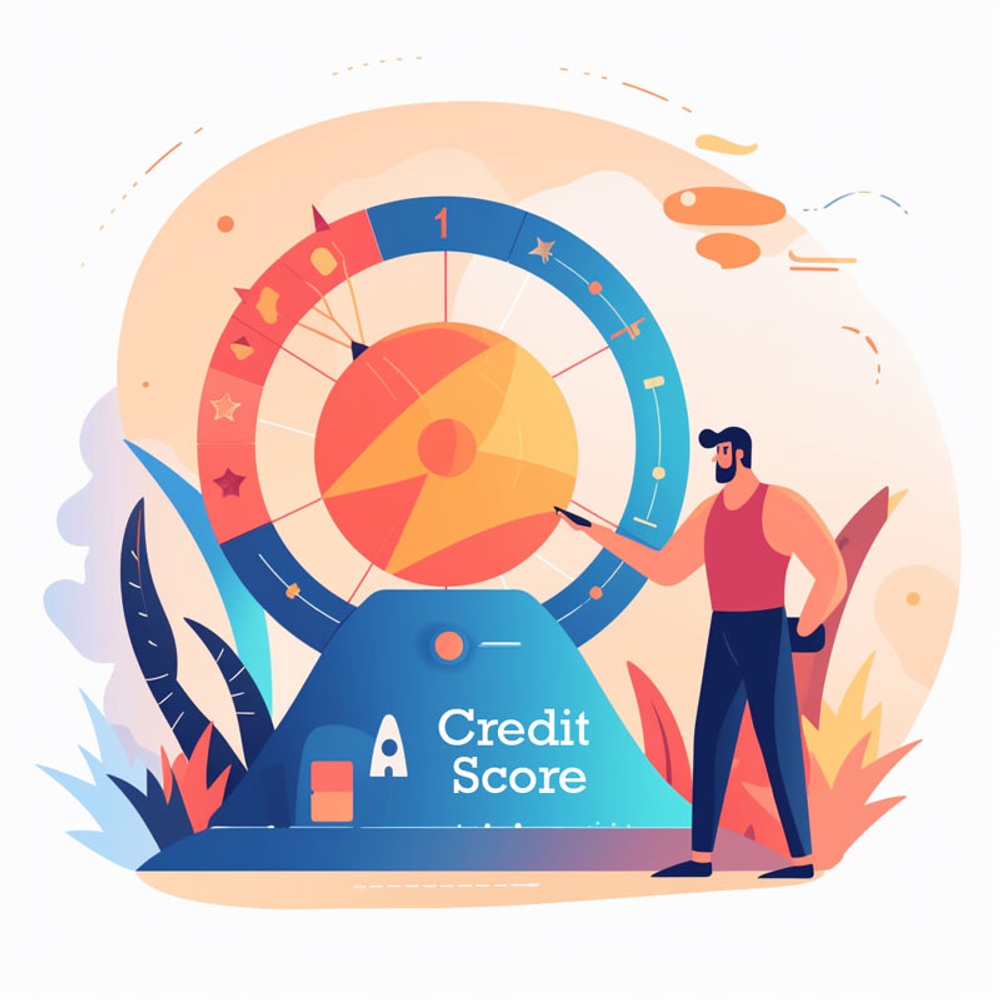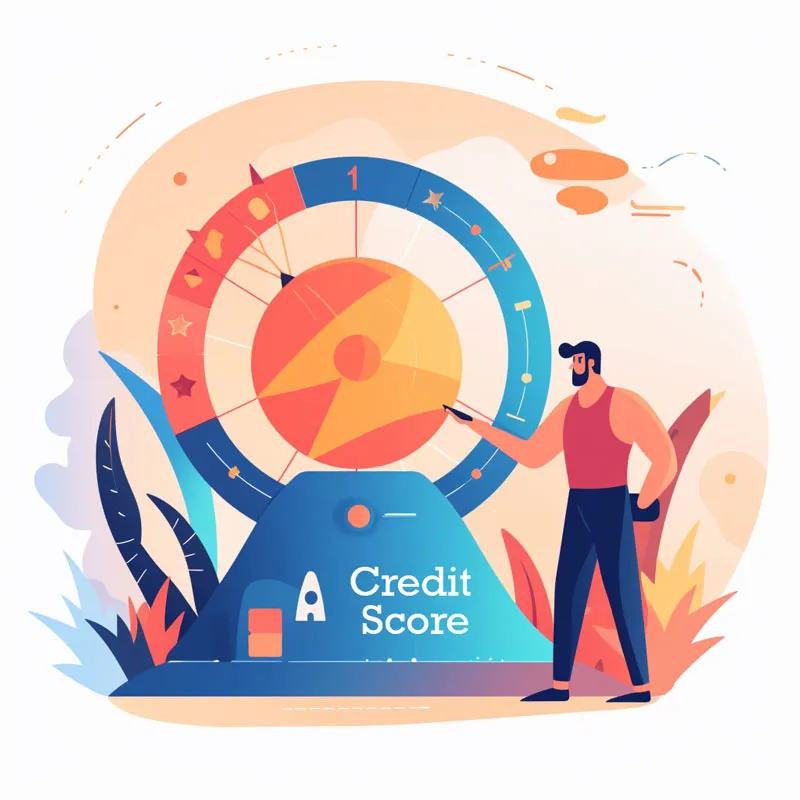Published
- 7 min read
How to build a credit score fast? Beginners guide to building credit

How to Build a Credit Score Fast? Beginners Guide to Building Credit

A solid credit score is the foundation for achieving financial success and stability. Whether you’re a recent graduate or someone looking to improve their credit, the importance of building credit correctly and quickly cannot be overstated. We previously had an in-depth article about what is a credit score and how a good credit score can save you money. In this blog post, we’ll provide a roadmap to help you accelerate your credit-building journey while keeping your financial health in check.
Understanding Credit Scores
A credit score is a three-digit number that reflects your creditworthiness. It’s based on your credit history, which includes your borrowing and repayment activities. Lenders use credit scores to gauge the likelihood that you’ll repay a loan or meet other financial obligations. A higher credit score typically translates to better interest rates, easier loan approvals, and more attractive credit card offers.
A Story of Sarah and Emily
Sarah and Emily were friends and both planned to buy their dream homes. Each found a house at $400,000. They had been planning for this moment for years, saving diligently and envisioning their perfect abodes. Though they shared similar goals, their credit scores were vastly different: Sarah’s credit score was an impressive 780, while Emily’s was a modest 650.
Eager to make their dreams a reality, both friends approached their local banks for 30-year fixed-rate mortgages. They both went to the same bank to get the loan, and to their surprise, their credit scores made all the difference in the interest rates they were offered. Sarah’s excellent credit score earned her a favorable interest rate of 3.25%, while Emily’s lower credit score resulted in a higher rate of 4.75%.
Armed with their mortgage rates, Sarah and Emily excitedly calculated their monthly mortgage payments, only to discover a significant difference. Sarah’s mortgage payment, with a 3.25% interest rate on a $400,000 loan, amounted to $1,740 per month. On the other hand, Emily’s mortgage payment, with a 4.75% interest rate on the same loan amount, was $2,087 per month.
Over the 30-year life of their mortgages, Sarah’s total payment would be $626,400, while Emily’s would be $751,320. This meant that Emily would end up paying a staggering $124,920 more than Sarah, all because of the difference in their credit scores.
You can transform this story to any similar scenario such as auto loans, personal loans, etc. This tale of two friends illustrates the impact that credit scores can have on major financial decisions, like buying a home. By maintaining a high credit score, Sarah was able to secure a lower interest rate and save a significant amount of money over the life of her mortgage. Emily’s journey highlights the importance of understanding and improving one’s credit score to achieve better financial outcomes.

The Steps to Building Credit Fast and Correctly
Now that we know what credit is and the importance of having good credit to save money, here’s a list of ways that you can increase your credit score with $0 interest.
Pay All Your Bills On Time
The most important factor in your credit score is your payment history, which accounts for 35% of your FICO score¹. This means that paying all your bills on time, every time, is the best way to build a positive credit history and boost your score. To avoid missing payments, you can set up automatic payments or reminders for your bills. If you do miss a payment, contact your creditor as soon as possible and try to resolve the issue.
Apply for a Student Credit Card
If you’re a student with limited or no credit history, consider applying for a student credit card. These cards are designed specifically for students and often have lower credit requirements, making it easier to get approved. Use the card responsibly by making timely payments and keeping your credit utilization low to build your credit score over time.
Get a Secured Credit Card
A secured credit card is a type of credit card that requires a cash deposit as collateral. The deposit usually matches your credit limit, so if you deposit $200, you can spend up to $200 with the card. A secured card can help you build credit by reporting your activity to the credit bureaus, as long as you use it responsibly and pay it off in full every month. To get a secured card, you need to have some income and a bank account, but you don’t need a good credit score or any credit history.
Some good places to get Secured Credit cards are:
Become an Authorized User
Another way to build credit fast is to become an authorized user on someone else’s credit card account. This means that you can use their card and benefit from their payment history and credit limit, without being legally responsible for the debt. However, you need to find someone who trusts you and has good credit habits, such as a parent, a spouse, or a close friend. You also need to make sure that the card issuer reports authorized user activity to the credit bureaus.
Pay Off Any Existing Debt
If you have any existing debt, such as loans or credit cards, paying it off can improve your credit score by lowering your credit utilization ratio. This is the percentage of your available credit that you are using at any given time, and it affects 30% of your FICO score¹. Ideally, you want to keep your utilization below 30%, or even better, below 10%. To pay off your debt faster, you can use strategies such as the debt snowball or the debt avalanche methods.
Request a Credit Limit Increase
Another way to lower your credit utilization ratio and boost your score is to request a credit limit increase from your existing credit card issuer. This means that you can spend the same amount but use less of your available credit. However, before you request a higher limit, make sure that your issuer won’t do a hard inquiry on your credit report, which can temporarily lower your score. You also need to have a good payment history and income to qualify for a higher limit.
Check Your Credit Reports
Start by obtaining your free annual credit reports from the three major credit bureaus – Equifax, Experian, and TransUnion – through AnnualCreditReport.com. Review your reports for accuracy and dispute any errors, as these can negatively affect your credit score. Reporting inaccuracies and ensuring your credit reports are accurate is a crucial step in building and maintaining your credit score.
Consider Experian Boost or UltraFICO
Experian Boost and UltraFICO are two programs that can help you improve your credit score by adding more positive information to your credit report. Experian Boost allows you to link your bank account and get credit for paying utility and phone bills on time¹. UltraFICO allows you to link your checking, savings, and money market accounts and get credit for having sufficient funds and avoiding overdrafts². Both programs are free and voluntary, but they only affect your Experian FICO score.
Use a Secured Credit Card
A secured credit card is another way to build credit fast if you have no credit history or a low credit score. A secured card requires a cash deposit as collateral, which usually matches your credit limit. You can use it responsibly by making timely payments and keeping your credit utilization low.
There’s a common misconception that owning a credit card means you’ll end up paying a lot of interest, or that paying interest on loans is necessary to boost your credit score. That’s just not true! In fact, understanding how to manage your finances wisely can make all the difference between thriving financially and struggling to improve your life.
Lucky for you, our Guru’s Smart Crew has got you covered with articles that break down all the factors affecting your credit score. By learning about these factors and their impact, you’ll be able to play your cards right, maximize your credit score, and pay zero interest.

Final Words
Building credit fast and correctly is a delicate balance between demonstrating financial responsibility and avoiding unnecessary debt. By following the steps outlined in this article, you’ll be well on your way to achieving a strong credit score. Remember that credit-building is a long-term process that requires diligence, patience, and wise financial decisions. Stay committed to your goals, and you’ll reap the benefits of a solid credit score in the years to come.